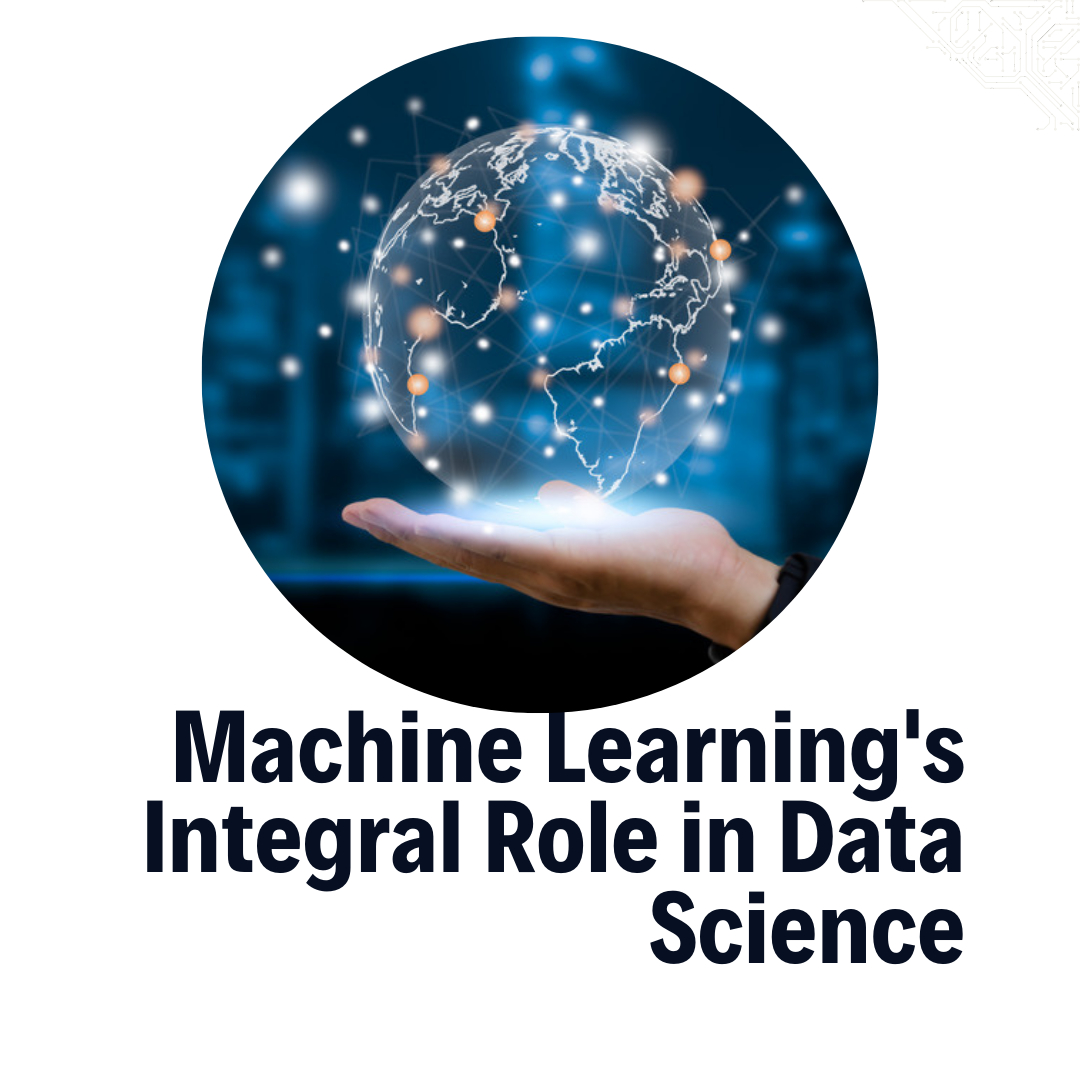Machine Learning's Integral Role in Data Science
 Ruhi Parveen
Ruhi Parveen
Data science is a multidisciplinary field that uses scientific methods, processes, algorithms, and systems to extract knowledge and insights from structured and unstructured data. At the heart of data science is machine learning, a subset of artificial intelligence that enables computers to learn from data without being explicitly programmed. Machine learning plays an integral role in data science, driving many of its most impactful applications and advancements.
Understanding Machine Learning
Machine learning algorithms can be broadly categorized into three types: supervised learning, unsupervised learning, and reinforcement learning.
Supervised Learning: In supervised learning, the algorithm learns from labeled training data, where each example is paired with a label or outcome. The algorithm aims to learn a mapping from inputs to outputs, enabling it to make predictions on new, unseen data.
Unsupervised Learning: Unsupervised learning involves learning from unlabeled data, where the algorithm aims to find patterns, relationships, or structures within the data. Clustering and dimensionality reduction are common tasks in unsupervised learning.
Reinforcement Learning: Reinforcement learning involves an agent learning to make decisions by interacting with an environment. The agent receives rewards or penalties based on its actions, allowing it to learn the optimal behavior over time.
Applications of Machine Learning in Data Science
Machine learning is used across various industries and domains to extract insights, make predictions, and automate processes. Some common applications of machine learning in data science include:
Predictive Analytics: Machine learning models can analyze historical data to make predictions about future events or outcomes. This is used in financial forecasting, customer churn prediction, and demand forecasting, among other areas.
Natural Language Processing (NLP): NLP uses machine learning to analyze, understand, and generate human language. It is used in sentiment analysis, text summarization, and language translation, among other applications.
Computer Vision: Machine learning is used in computer vision to analyze and interpret visual data, such as images and videos. It is used in facial recognition, object detection, and medical image analysis, among other tasks.
Recommender Systems: Recommender systems use machine learning to recommend items or content to users based on their preferences and behavior. They are used in e-commerce, streaming services, and social media platforms, among other applications.
Fraud Detection: Machine learning is used in fraud detection systems to identify fraudulent activities or transactions. It analyzes patterns in data to detect anomalies indicative of fraud.
Challenges and Future Directions
Despite its numerous applications and advancements, machine learning in data science faces several challenges, including:
Data Quality: Machine learning models are only as good as the data they are trained on. Poor-quality data can lead to biased or inaccurate models.
Interpretability: Many machine learning models are complex and difficult to interpret, making it challenging to understand the reasoning behind their predictions.
Ethics and Bias: Machine learning models can inadvertently perpetuate biases present in the data, leading to unfair or discriminatory outcomes.
To address these challenges, researchers and practitioners are exploring new techniques and methodologies, such as explainable AI and fairness-aware machine learning, to make machine learning more transparent, interpretable, and fair.
Conclusion
Machine learning plays a crucial role in data science, enabling the extraction of insights and knowledge from data to drive informed decision-making and automation. With its wide range of applications and ongoing advancements, machine learning continues to reshape industries and drive innovation across various domains. Individuals interested in mastering machine learning and data science can benefit from enrolling in a Data Science Training Institute in Lucknow, Delhi, Noida, and other cities in India, where they can learn the latest tools, techniques, and best practices in the field.
Subscribe to my newsletter
Read articles from Ruhi Parveen directly inside your inbox. Subscribe to the newsletter, and don't miss out.
Written by

Ruhi Parveen
Ruhi Parveen
I am a Digital Marketer and Content Marketing Specialist, I enjoy technical and non-technical writing. I enjoy learning something new.